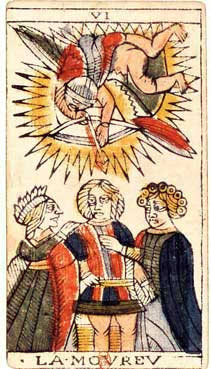
Expansive Poetics – June 30 1981, a new class. Allen takes up, once again, briefly, after he left of, with further remarks on Federico Garcia Lorca and the wider context of European modernism – and a read-through/analysis of Lorca’s poem, “Oda a Salvador Dali”
AG: .. my own method was, as I conceived it, taking the naturalistic long-line of (Walt) Whitman, or the naturalistic humanistic open form, and combining (it) with the mind-jumps of twentieth-century post-Einstein-ian Surrealism. Because (Albert) Einstein‘s Theory of Relativity was actually conceived around 1907-1917, about the same time as the Dadaists and Surrealists were beginning their operations in Zurich. In fact, the Cabaret Voltaire in Zurich, Switzerland, 1916-1917, was carrying on with literary activities with Hugo Ball,Tristan Tzara, Francis Picabia, and others, simultaneous with Einstein’s teaching (in Basel, I believe, in Switzerland), same years. Simultaneous with (Vladimir Ilyich) Lenin‘s residence, one block away from the Cabaret Voltaire, on Spielgasse Street in Zurich, where he was writing The State and Revolution and preparing to take the sealed train to Russia. Simultaneous with James Joyce writing Finnegan’s Wake [Editorial note – Allen means Ulysses here] in the cafe where Hans Arp, Picabia, Tzara and Lenin visited. It was all happening at the same time. It was 1917 in Zurich.

Peter Orlovsky: Einstein (around) too?
AG: Einstein too, yes. Einstein had been around teaching. There was a concentration of change of consciousness in one spot.

(Federico Garcia) Lorca was an inheritor of Whitman’s spirit, but he was also a practitioner of the Surrealist style. Salvador Dali had a painting show in New York in 1958, or (19)59 was that? or so..
Peter Orlovsky: (195)8, I think…
AG: Yeah, so we ran into him at his show. And that was the first time that I’d ever seen him And, apparently, he was just hanging around the show, looking at it (at Madison Avenue, at some gallery, I’ve forgotten which, Gallery Maeght,I think)). We went up and said, “Have you read Lorca?” (or, I think, I went up and said, “Have you read Lorca’s “Ode To Walt Whitman”?). And he said, “Ah yes, but have you read Lorca’s “Ode to Salvador Dali? It turns out that, at one point or other, they were friends, lived together and exchanged art (I don’t know when). But I never did get to see the “Ode to Salvador Dali” until this year (all those years it was elusive). There’s a Poems of Federico Garcia Lorca, chosen and translated by Paul Blackburn (whose translations David Henderson is also using for Nicholas Guillen and other Spanish writers in his (NAROPA) class)
The Oda a Salvador Dali (Ode To Salvador Dali) is not as interesting as the others, but I thought, since it’s an outright Surrealist work, and it’s Lorca’s interaction with Surrealism, and since we’ll be taking up Surrealist methods, it would be a good specimen to introduce to your ears (if not to your eyes, because I didn’t make a copy – although, if anyone’s interested, we can do that). I’ll read from it. I won’t read the whole thing. [Allen begins reading Lorca’s poem] – “Una rosa en el alto jardín que tú deseas./Una rueda en la pura sintaxis del acero./Desnuda la montaña de niebla impresionista./Los grises oteando sus balaustradas últimas.” – “One rose in the high garden you desire./ A single wheel in the pure syntax of steel./ The mountain stripped of Impressionist fog./ Greys overlooking their final balustrades” – Well, I guess that’s descriptive, actually, it sounds Surrealist but it’s just descriptive. “Mountain(s) stripped of Impressionist fog”, because, you remember, Dali was painting hard-edge (Surrealist, but, nonetheless super-Realist) – “final balustrades” – balustrades in eternity, with great grey skies or deserts in the background.

Modern painters in their white studios/cut the sceptic flower of the root squared/In the Seine’s water a marble iceburg/ chills windows, the ivy shrivels./ Man stomps the flagstone streets./Mirrors avoid the reflection’s magic/The government’s closed down the perfume shops./A machine perpetuates its double beats/No woods, screams, frowns. Mint growing on the roofs of old houses. Air polishes its prism upon the sea and the horizon rises like a great aqueduct.” (“Los pintores modernos en sus blancos estudios,/ cortan la flor aséptica de la raíz cuadrada./En las aguas del Sena un ice-berg de mármol/enfría las ventanas y disipa las yedras./ El hombre pisa fuerte las calles enlosadas./Los cristales esquivan la magia del reflejo./El Gobierno ha cerrado las tiendas de perfume./La máquina eterniza sus compases binarios./ Una ausencia de bosques, biombos y entrecejos/ yerra por los tejados de las casas antiguas./ El aire pulimenta su prisma sobre el mar/ y el horizonte sube como un gran acueducto.“)
Actually, that’s quite good for a description of Dali – “the horizon rises like a great aqueduct.” [Allen continues] – “Sailors, unknowing of the vine and the line between light and shadow, decapitates sirens on leaden seas./Night, that black statue of prudence, holds/ the rounded mirror of moon betwee her palms./A desire for forms and limits wins us over./The man with a yellow meter measure comes./Venus is a white still-life and butterfly collectors run./Oh, Salvador Dali, your voice olive dark/I do not praise the adolescent imperfection of your brush” (“Marineros que ignoran el vino y la penumbra,/decapitan sirenas en los mares de plomo./La Noche, negra estatua de la prudencia, tiene/el espejo redondo de la luna en su mano./ Un deseo de formas y límites nos gana./Viene el hombre que mira con el metro amarillo./ Venus es una blanca naturaleza muertay los coleccionistas de mariposas huyen./…Oh, Salvador Dalí, de voz aceitunada!/No elogio tu imperfecto pincel adolescente..“) – That’s kind of nice, and very, very elegant – “I do not praise the adolescent imperfection of your brush” – there he’s getting back to the “Oda a Walt Whitman’‘ – “..or your color which guards the color of your time,/ but I commend your everlasting circumscribed longings, hygienic mind” (ni tu color que ronda la color de tu tiempo,/pero alabo tus ansias de eterno limitado./ Alma higiénica..”) – that’s pretty good for Dali –

“Hygienic mind, you live above new marble pillars./ You file the dark wood of incredible forms/Your imagination attains whatever your hands arrive (“..vives sobre mármoles nuevos./ Huyes la oscura selva de formas increíbles./Tu fantasía llega donde llegan tus manos”) – That’s pretty good – “sus geometrías.”)- That’s good descriptive realism for Dali. And the conclusion is -“Oh, Salvador Dali, your voice olive-dark/ I speak only what you and your canvases tell me./I do not praise the adolescent imperfection of your brush/ but I sing the firm direction of your arrows. I sing your beautiful spirit full of Catalan lights,/ your love of what has possible explanation./ I sing your heart astronomical and tender,/out of the French deck and with no tear whatsoever..” (“Oh, Salvador Dalí de voz aceitunada!/Digo lo que me dicen tu persona y tus cuadros.No alabo tu imperfecto pincel adolescente,/ pero canto la firme dirección de tus flechas./Canto tu bello esfuerzo de luces catalanas,/tu amor a lo que tiene explicación posible./Canto tu corazón astronómico y tierno,/de baraja francesa y sin ninguna herida.”) – What’s a “French deck” (baraja francesa), does anybody know? – must be some kind of..
Peter Orlovsky: Deck of a ship?
Student(s): ..or of cards.. Cards..
AG: Well, I’m assuming it’s a deck of cards, but what’s a “French” deck?
Student: …(or maybe)..alongside the roof, where they have the railings..on top of every…
AG: No, I think it’s a deck of cards.
Student: Thirteenth-century… …the Marseilles deck…

AG: Oh, yes, of course, the tarot, yes, yes, yes, yes. Okay – “I sing your heart astronomical and tender”, so that would be.. “astronomical”.. astromancy, and what not. [Allen continues] – “I sing your heart astronomical and tender,/out of the French deck and with no tear whatsoever/ I sing the statues’ longing you pursue without let/ fear for the emotion which awaits you in the street./I sing the small siren of the sea who sings to you/ from a bicycle of conch and coral./But I sing, above all, a common thought/ which unites us in dark and golden hours./Art is not the light that blinds our eyes – it is love first, friendship or fencing./ It is first that painting you sketch so patiently/ – Teresa’s breast, she with the restless flesh/, the tight curl of ungrateful Matilde/it’s our friendship painted as a game of dice./ Typewriter tracks of blood set upon gold/ underline the heart of Catalonia eternal” – “Catalan”..which, I think, was where Dali was from – “Stars like fists without falcons make you glitter/ while your painting and your life flower./ You may not face the hourglass, its membranous wings/, nor the hard scythe tough with allegories./ You saw it, and naked always, your brush in the air,/ face to sea, peopled with boats and the men who sail them” (“Canto tu corazón astronómico y tierno,/de baraja francesa y sin ninguna herida./Canto el ansia de estatua que persigues sin tregua,/ el miedo a la emoción que te aguarda en la calle./ Canto la sirenita de la mar que te canta/ montada en bicicleta de corales y conchas./ Peroante todo canto un común pensamiento/ que nos une en las horas oscuras y doradas./ No es el Arte la luz que nos ciega los ojos./ Es primero el amor, la amistad o la esgrima./ Es primero que el cuadro que paciente dibujas/ el seno de Teresa, la de cutis insomne,/ el apretado bucle de Matilde la ingrata,/ nuestra amistad pintada como un juego de oca./ Huellas dactilográficas de sangre sobre el oro,/ rayen el corazón de Cataluña eterna./Estrellas como puños sin halcón te relumbren,/ mientras que tu pintura y tu vida florecen. No mires la clepsidra con alas membranosas,/ ni la dura guadaña de las alegorías./ Viste y desnuda siempre tu pincel en el aire/ frente a la mar poblada de barcos y marinos.“) – So that’s somewhat humane and somewhat surreal
AG (to Peter Orlovsky): You ever hear that before?
Peter Orlovsky: No
AG: Finally, after all these years, I just got (to) this the other day…
[Audio for the above may be heard here, from the beginning till approximately nine-and-a-half minutes in]

